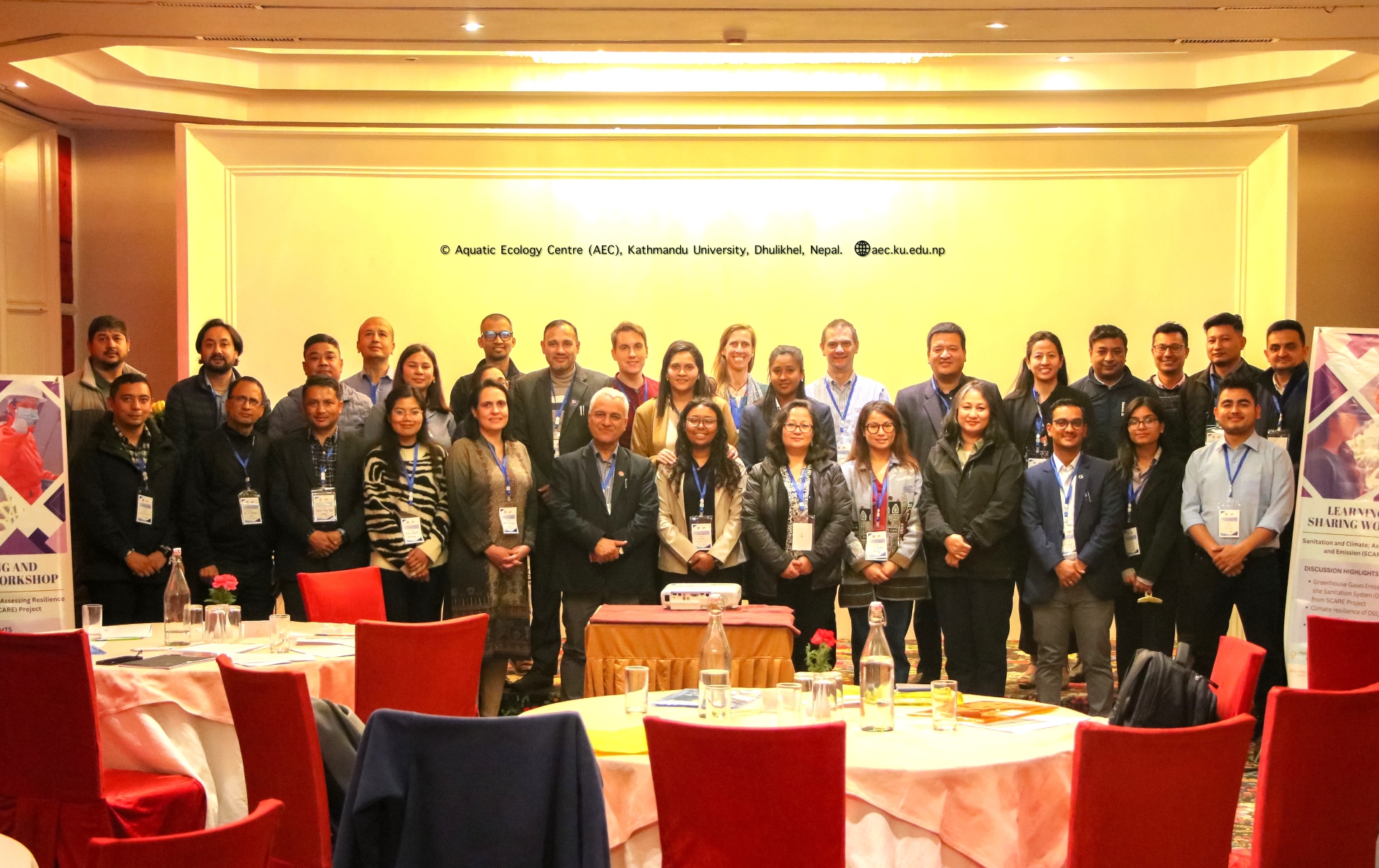
Kathmandu : Kathmandu University in collaboration with the University of Bristol, UK; University of Leeds, UK; University of Technology, Sydney; University of Harmaya, Ethiopia; Kyambogo University, Uganda; Ecole Polytechnique De Thiès, Senegal and Global Green Growth Institute organized a three-day dissemination workshop for collaborating research project “Sanitation and Climate Change; Assessing Resilience and Emission (SCARE)” funded by Bill and Melinda from March 20th – 22 nd 2024 at Hotel Himalaya, Kupondole.
Over the past four years, this project has been actively measuring greenhouse gas emissions from on-site sanitation systems in Nepal and assessing the resilience of these systems to climate change. Prof. Guy Howard from UoB, Prof. Barabara Evans (Leeds, UK), Prof. Juliet Willetts and Dr. Jeremy Kohlitz (UTS, Australia), Professor Subodh Sharma from Kathmandu University, and Dr. Anish Ghimire, currently at Asian Institute of Technology, Thailand are the main investigators for the project
Over 50 participants including the Ministry of Water Supply, Ministry of Forest and Environment, Department of Hydrology and Metrology, Department of Water Supply and Sewerage Management, and many other experts from NGOs/INGOs, academicians, and researchers attended the program.
The three-day program aimed to develop Climate Risk Narratives (CRN) for the sanitation sector, disseminate the findings from the SCARE project, and provide hands-on training on the measurement of GHG emissions from the onsite sanitation systems. “Increasing pattern of the temperature and the changes in precipitation along with extreme events are matters of concern when it comes to climate change “A panelist at the CRN workshop Prof. Dr. Rijan Bhakta Kayasth mentioned during the workshop.
“The impact of climate on sanitation and these impacts can amplify in the future if not taken care of. Climate resilient SSP can be a good approach to tackle the climate impact on the sanitation value chain” – said Dr. Sudan Panthi from WHO. A rigorous group discussion concluded that different dimensions are important when it comes to building resilience Sanitation and issues like gender roles, sectoral coordination, and data sharing and availability.
Following the CRN workshop, learning, sharing, and dissemination of the SCARE project was conducted during day two of the workshop. A climate resilience assessment framework was shared by the SCARE project team that can assess the resilience of the sanitation system. This framework is based on the hazard-specific and generic adaptive capacity throughout the sanitation value chain.
Prof. Willets and Dr. Kohiltz presented the detailed theory and the framework for the project. As another component of the project, Ms. Prativa Poudel from Kathmandu University presented the method and results from the quantification of the GHG emissions from the on-site sanitation sector in Nepal. As a way forward, the project looks forward to developing a simpler metric for assessing resilience and the work on mitigation options for the reduction of GHG emissions from OSS in Nepal. The two-day stakeholder engagement was followed by a training on GHG emissions from OSS. The demonstration and practical sessions were given to the participants. The program was officially closed by Prof. Janardan Lamichhane, Dean of the School of Science at Kathmandu University.

 1115 पटक हेरिएको
1115 पटक हेरिएको 




















